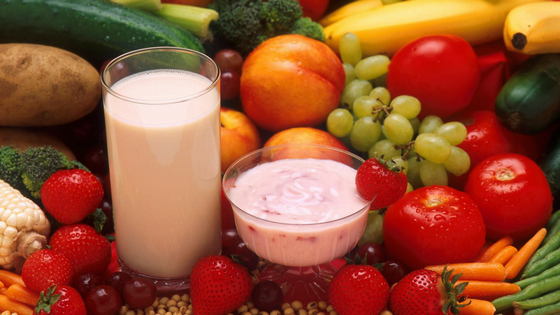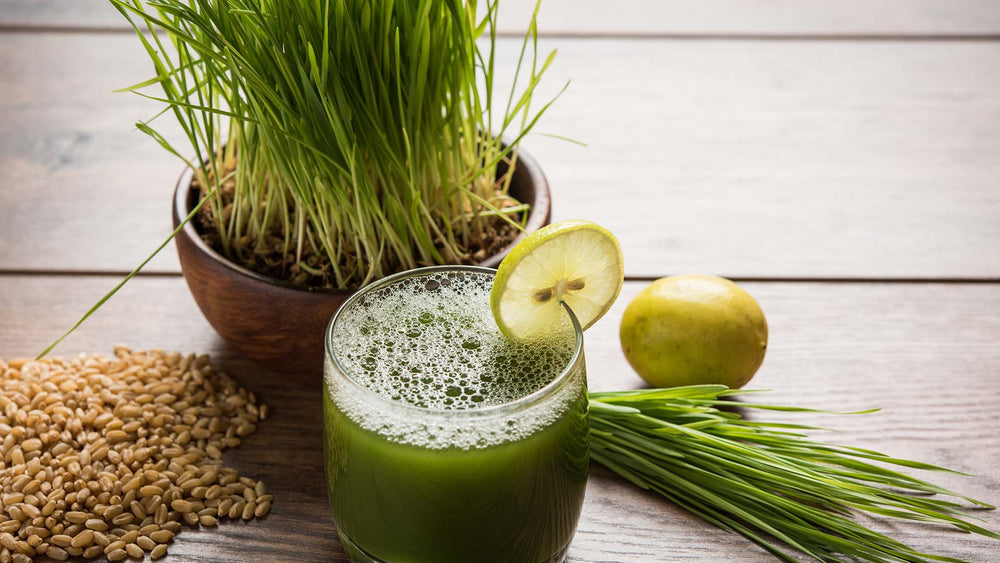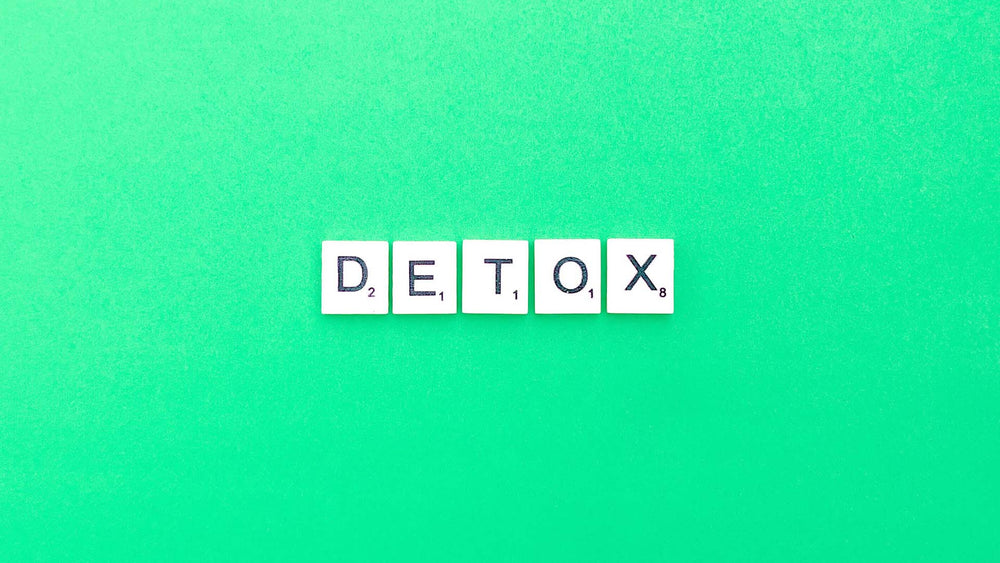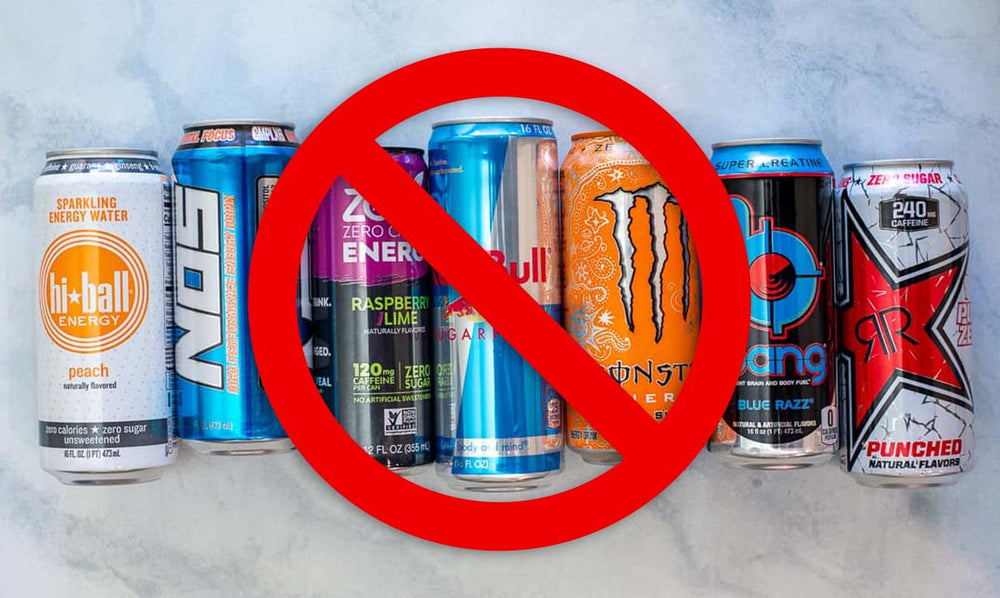Depression and anxiety due to vitamin deficiencies are common in people who eat lots of junk food and processed food. If your diet is heavy on pre-packaged and frozen foods, and you rarely eat fruits, vegetables, nuts, or seeds, you may be at risk of a mood-changing vitamin deficiency.
People who eat at restaurants all the time and don’t cook at home may not get enough mood-positive nutrients, either, even if they eat at sit-down restaurants instead of fast-food places.
Here’s a list of ten nutritional deficiencies that may cause depression, anxiety, insomnia or foggy thinking.
1. Vitamin D
Vitamin D levels are mostly dependant on the amount of natural, unfiltered sunlight that comes in contact with your skin. Lack of sunshine (and Vitamin D from other sources like beef liver, egg yolks, cheese and salmon) has been shown to contribute to depression and autism.
The National Institute of Health recommends adults get 600 internal units of Vitamin D a day from all sources. Many experts, however, suggest getting 10,000 IUs or more daily. Spending ten minutes a day in the sun, with bare arms and legs, and without sunscreen, will give you the 10,000 IUs experts recommend.
2. Zinc
Zinc is a mineral found in poultry, oysters, and red meat. Smaller amounts are available in grains and beans, but they may be harder for the body to absorb. A Canadian research paper shows that zinc helps your body and brain handle stress. Other studies show that severely depressed patients have a low amount of zinc in their serum.
3. Magnesium
Studies have shown that magnesium is a safe, natural treatment for depression. Subjects received a 248mg dose of elemental magnesium daily for six weeks. At the end of the study, participants’ depression scores dropped six points, and they also saw a decrease in anxiety. Over 60% of the participants said they would continue to take magnesium after the stuffy ended.
If you’re a vegetarian or snack on fruits, nuts and seeds, you probably get enough magnesium. This mineral is necessary for important biochemical reactions in the body. It helps muscles to contract, produces energy, and helps form bones and cells. Magnesium is responsible for thousands of processes in your body, and about 70% of Americans are deficient in this mineral.
The standard American diet, which is high in sugar, salt, soda, and processed food, reduces the amount of magnesium your body absorbs. Drinking alcohol and taking antibiotics can also prevent you from processing this valuable mineral.
Men should get 400 to 420 milligrams of magnesium daily, and women should have a daily intake of 310-320 milligrams, according to the National Institute of Health.
4. B Complex Vitamins
Vitamin B12 has been well documented as an anti-depression nutrient, but studies show thiamine, niacin, Vitamin B6 and folate will make you happier as well. These vitamins also help reduce the symptoms of schizophrenia, dementia, and alcoholism, along with a healthy diet.
Vitamin B12
A 2005 study found that a low amount of Vitamin B12 serum results in an increased chance of depression. Taking more B12, through food, supplements, or injections, can reduce depression. One milligram of Vitamin B12 a day is the supplemental amount suggested by the study’s researchers.
When you are deficient in Vitamin B12, you’re unable to produce the proper amounts of serotonin and other brain chemicals to balance your mood.
Vitamin B12 is found naturally in poultry, egg whites, lean red meat, fish and fortified breakfast cereal.
Buy Happy Girl Mood Enhancing Supplement
HAPPY GIRL helps you to feel calmer and more energetic and promotes an overall feeling of well-being
Folate
People with a high level of folate (Vitamin B9) respond better to antidepressant treatment than people with a low folate level.
The average adult needs 400mcg of folate a day. Deplin, a prescription folate, is available to treat depression, but taking a folate supplement from a trustworthy manufacturer will help many people with light to moderate depression.
It’s easy to get more folate in your diet. Nuts, red meat, poultry, fruits, eggs, and seafood contain moderate to high amounts of folate. Foods with a high amount of this vitamin include liver, spinach, and asparagus.
Niacin
Niacin (Vitamin B3) is involved in the bodily process that metabolizes serotonin, and if you don’t have enough niacin in your system, you may not have enough serotonin to balance your mood.
You can get more niacin in your diet by eating beets, peanuts, broccoli, and fish, or drinking milk. Some people with severe depression claim to have reversed their symptoms by taking between 1,000 and 3,000 mg of a niacin supplement.
Thiamine
A lack of thiamine, or Vitamin B1, in the diet reduces the energetic reactions your brain needs to function properly. (Thiamine deficiencies are often caused by excessive alcohol consumption.)
Vitamin B1 also plays a role in nerve function, and one study showed that it may be helpful in relieving generalized anxiety disorder (GAD) in older adults. Some people who suffer from social anxiety say taking thiamine supplements have helped them improve symptoms.
Thiamine is sometimes referred to as an anti-stress vitamin because it protects the body from mood changes and physical reactions caused by different types of stress. One study showed that it helped relieve symptoms of work stress.
You’ll find thiamine in fortified breakfast cereals, eggs, pork, peas, fish, oranges, and beef.
Vitamin B6
Vitamin B6, also called Pyridoxine, can help insomniacs get more zzzzz’s and calm down people suffering from anxiety. This B vitamin helps the body produce the mood-regulating neurotransmitters serotonin and norepinephrine, and melatonin, which is necessary to regulate your body clock.
Chickpeas, beef liver, tuna, and salmon are high in Vitamin B6. Other foods containing this vitamin include watermelon, cottage cheese, spinach, potatoes, and chicken breast.
5. Omega 3 Fatty Acids
Found in salmon, tuna and other fatty, cold water fish, the DHA and EPA types of Omega-3 fatty acids protect your memory and prevent depression. In a study at Massachusetts General Hospital, patients were given one gram a day of EPA-E for eight weeks or a placebo. At the end of the study, the group given EPA showed a small improvement.
A review of studies conducted in 2004 showed that EPA and DHA Omega 3 fatty acids in fish (and high-grade fish-oil capsules) improved symptoms in patients with light to moderate depression.
6. Selenium
A study conducted in New Zealand found that young adults with very high or very low levels of selenium in their bodies were at risk for depression. Participants with low selenium were at the greatest risk for depression. Insufficient selenium also contributes to poor thyroid function and infertility in both men and women
Selenium helps convert the inactive hormone T4 to an active one called T3.It helps the antioxidant glutathione peroxidase prevent polyunsaturated acid in cells from becoming rancid.
Brazil nuts contain the highest concentration of selenium, and eating as little as two of these nuts a day can guard against depressive symptoms. Add more yellowfin tuna, boneless turkey, chicken, halibut, eggs, and spinach to your diet to improve your selenium intake.
Buy Happy Girl Mood Enhancing Supplement
HAPPY GIRL helps you to feel calmer and more energetic and promotes an overall feeling of well-being
7. Iron
When you don’t get enough iron, it causes problems with signals sent to the neurotransmitters in your brain, and it also interferes with the creation of myelin, a material that insulates nerves. An ongoing lack of iron may trigger anxiety, depression, poor concentration, and psychiatric problems.
Eat more red meat and seafood to get more heme iron, which is easier to absorb than plant-based nonheme iron. Green beans, spinach, and nuts contain nonheme iron. You can get more iron through wheatgrass and other supplements.
8. Iodine
The thyroid, a butterfly-shaped gland in your neck, is part of the endocrine system. It helps regulate brain and immune function, the metabolic rate and body temperature. Iodine help it to work properly
Iodine deficiency, though not widespread, is making a comeback in the U.S. because of the trend towards salt-free diets. In the 20th Century, many people used iodized salt on food to combat to ensure they received a sufficient amount of iodine.
You can’t get iodine from salty pretzels or other junk food. It is only available from natural sources, such as kelp, potatoes, wild-caught fish, eggs, yogurt, raw milk, cheese, bananas, and peas.
9. Amino Acids
Amino acids build the foundation for protein, help your brain focus and balance your mood. When you don’t get enough amino acids through your diet, you’ll feel sluggish and depressed.
The essential amino acids - methionine, phenylalanine, threonine, tryptophan, valine, lysine, isoleucine, leucine and histidine- help your body make the neurotransmitters needed for a balanced mood and brain function.
These nine essential amino acids aren’t manufactured by your body, and you need to get them from food and supplements. Red meat, fish, eggs, seeds, nuts, and beans contain one or more amino acids.
10. Choline
The macronutrient choline is related to B vitamins because it supports metabolism, brain function, and nerves.
Feeling fatigued or depressed are signs of a choline deficiency. This nutrient is also linked to other lapses in brain function, including cognitive decline, memory loss, and learning disabilities.
Luckily, choline is found in a variety of animal and plant-based foods. You’ll find it in eggs, poultry, fish, red meat, dairy products, nuts, seeds, and cruciferous vegetables.
Foods to Avoid
Eliminate or severely reduce the amount of processed foods you eat. Cut down on any food or beverage with the following ingredients:
- Sugar
- Alcohol
- Caffeine
- Sodium
- Hydrogenated oil
A study published in Scientific Reports indicated that men over 22 years old who ate 67 grams of sugar daily were 23% more likely to be depressed five years later. The recommended daily allowance for sugar consumption is 20 grams for women and 36 grams for men.
Hydrogenated oil is used in margarine, packaged snacks, fried foods, and baked goods. It contains trans fats, which elevate your LDL (or “bad”) cholesterol level and may lead to heart disease. A Brazilian study showed older rats that were fed a diet of trans fats became fearful and anxious.
Alcohol is a depressant. It may make you seem happy and uninhibited on the surface, but will make you more depressed after the initial “high” has lifted. It is not known if drinking alcohol causes depression in normal individuals, or if people start drinking because they are already depressed.
The caffeine in coffee or tea may perk you up in the morning, but it can cause serious jitters if you are already anxious. Drinking more coffee than usual can cause an anxiety-prone individual to experience a pounding heart, a sense of doom, or other symptoms of a panic attack.
Eating too many salty foods can elevate your blood pressure, lead to heart disease, and may make some people nervous. However, some studies show that a diet without enough sodium can cause depression.
It’s obvious why certain foods and food ingredients contribute to stress and depression.
However, some seemingly safe choices may cause heightened nervousness in people who are prone to anxiety.
Apple Juice
Fruit juices don’t have fiber for slow digestion, and contain refined fructose to cause a spike in blood sugar. It also causes a rush of adrenaline, and you may experience symptoms similar to a panic attack if you’re already nervous. Some brands of apple juice may contain arsenic, which worsens anxiety and depression.
Pasta and Other Refined Carbohydrates
`Pasta and other carbs like white breads and doughnuts cause your blood sugar to rise and ebb quickly. A Columbia University study showed that women who experienced elevated blood sugar after eating refined grains and sugar had an increased chance of depression. The higher the spike in blood sugar, the greater the chance of depression.
A whole grain diet, rich in quinoa and brown rice, has been shown to reduce the risk of depression.
Buy Happy Girl Mood Enhancing Supplement
HAPPY GIRL helps you to feel calmer and more energetic and promotes an overall feeling of well-being
Wheatgrass – An All-Natural Antidepressant and Anti-Anxiety Treatment
Wheatgrass is considered nature’s perfect food by many experts. It contains all the amino acids listed above, over 300 enzymes, and hundreds of other nutrients, including B vitamins, magnesium, zinc, iron, iodine, and selenium.
You can stay emotionally balanced by eating a healthy diet, exercising (to release endorphins, the pain-killing happiness hormone), getting enough sleep, and taking a wheatgrass supplement.
Happy Girl Natural Mood Enhancer and Energizer has all the nutrients wheatgrass offers, plus a specially formulated herbal blend to promote a balanced mood. The proprietary blend contains green tea extract, Hawthorn berry, ginkgo biloba, ginger and guarana extract and several other ingredients for added energy and a better mood. Check out testimonials from satisfied consumers here.
















